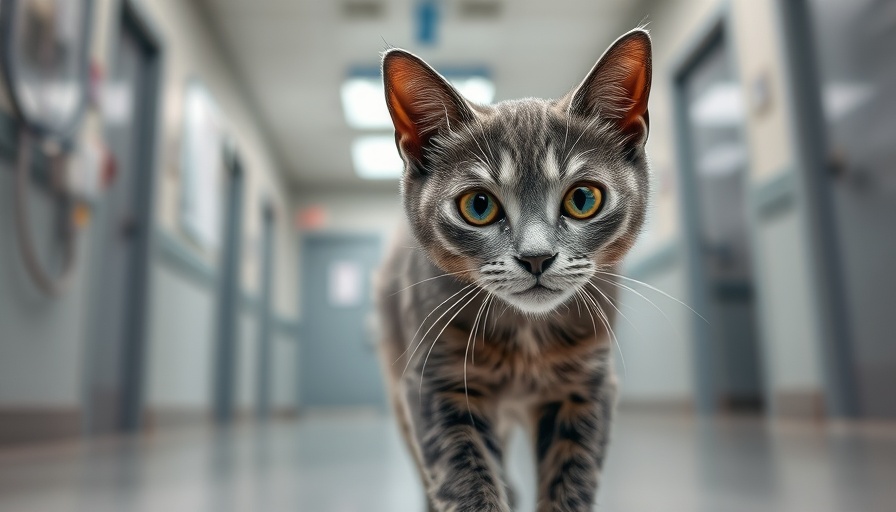
Understanding Your Cat's Silent Struggles
Cats are often perceived as low-maintenance companions because they usually carry themselves with independence and poise. However, their instinctive tendency to conceal weakness can mask serious health issues that pet parents may overlook. Our bonds with them allow us insight into their behavior, yet subtle changes can sometimes indicate underlying problems that require immediate attention.
Warning Signs of Health Issues
While we may marvel at our cats' unique personalities, becoming attuned to their everyday behavior is crucial. Changes such as reduced appetite, increased thirst, unusual hiding, or lethargy can all serve as red flags. Regular veterinary exams are vital for early detection; they not only help in identifying diseases but also prevent them from progressing into more severe health complications.
Spotting Feline Immunodeficiency Virus (FIV)
Feline Immunodeficiency Virus (FIV) is a sinister health risk that many pet parents might not be aware of. This virus compromises a cat's immune system, significantly increasing the likelihood of secondary infections. FIV is more prevalent in outdoor cats, particularly those that socialize with other felines. Early signs, including fever and swollen lymph nodes, may easily go unnoticed in seemingly healthy cats.
Understanding the Risks of Diabetes in Cats
Like humans, cats can develop diabetes, which manifests when insulin isn’t properly utilized in the body. Common symptoms like increased thirst, frequent urination, and weight loss can easily be mistaken for normal aging. As diabetes progresses, it can lead to severe health complications like kidney failure if undetected. Even the most casual observer should prioritize regular vet visits to catch such issues early.
Other Hidden Health Issues to Recognize
Beyond FIV and diabetes, several other hidden health issues pose risks to our feline companions. These include renal failure, hyperthyroidism, and dental diseases. Unlike dogs, cats may not exhibit overt signs of pain, making routine check-ups indispensable.
Health issues can often seem daunting, but they don’t have to be. As a loving pet parent, employing preventative measures and being observant allows for a proactive rather than a reactive approach to your cat's well-being.
Taking Action for Your Cat's Health
Investing time into monitoring your cat's health can lead to a more fulfilling life for them—and you. Consider integrating wellness checks into your cat care routine, including dietary modifications and plenty of playtime, which can improve overall health outcomes.
Talk to Your Vet
Connecting with a veterinary professional can provide you with preventive health tools and guarantee your cat receives the best care possible. Don't hesitate to reach out if you notice even the slightest behavioral change. After all, your cat relies on you.
 Add Row
Add Row  Add
Add 




Write A Comment